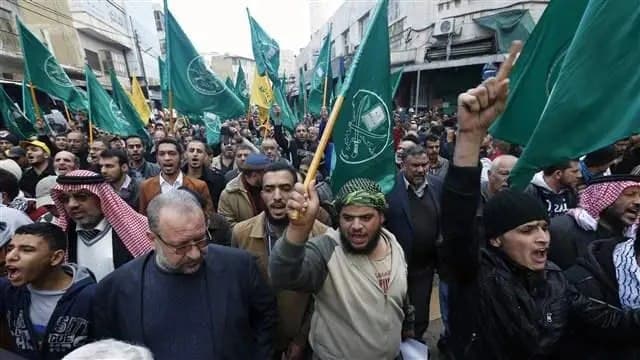Secretary of State Rubio Proposes Terror Designation for Muslim Brotherhood, Sparks Global Debate
In a significant policy shift, U.S. Secretary of State Marco Rubio announced today that the United States is moving to designate the Muslim Brotherhood as a terrorist organization. This declaration marks a pivotal moment in U.S. foreign policy and has ignited a heated debate among lawmakers, scholars, and international observers regarding the implications of such a designation.
Background & Context
The Muslim Brotherhood, founded in Egypt in 1928, is one of the oldest and most influential Islamist organizations in the world. Historically, it has been characterized by its complex relationship with various governments in the Middle East and North Africa. While some view the Brotherhood as a legitimate political movement advocating for social justice and reform, others accuse it of fostering extremism and violence. The group"s activities have spurred divergent opinions, leading to its classification as a terrorist organization by several countries, including Egypt and Saudi Arabia.
Secretary Rubio"s announcement comes amidst growing concerns over radicalization and terrorism globally. The U.S. has grappled with how to engage with Islamist groups that operate within legal and political frameworks while simultaneously addressing security threats. The proposed designation is seen as an effort to align U.S. policy with its counterterrorism strategy, particularly in the wake of rising anti-terrorism sentiments.
Key Developments
During a press conference, Rubio emphasized that the designation would enhance U.S. efforts to combat terrorism by limiting the Brotherhood’s financial resources and international influence. "The Muslim Brotherhood has long acted as a conduit for extremist ideologies and has been linked to various acts of violence," he stated. "By designating them as a terrorist organization, we are taking a firm stand against the proliferation of radical thought that threatens our allies and interests."
The announcement drew immediate reactions from both sides of the political spectrum. Supporters argue that this action is a necessary step to curb the influence of Islamist extremism, while critics warn that it could undermine moderate voices within the Muslim community and further alienate allies in the region. Lawmakers from both parties are expected to debate the implications of this move in the coming weeks.
Broader Impact
The potential designation of the Muslim Brotherhood as a terrorist organization raises several critical questions about U.S. foreign policy in the Middle East. Experts suggest that this action could strain relationships with countries like Turkey and Qatar, which have historically maintained ties with the Brotherhood. Additionally, it may complicate U.S. engagement with other Islamist political parties that seek to operate within democratic frameworks.
Furthermore, this designation could have significant ramifications for domestic policy, particularly concerning Muslim communities in the United States. Activists worry that labeling the Brotherhood as a terrorist organization may lead to increased scrutiny and discrimination against Muslims, exacerbating an already fraught social climate. As previously reported, the U.S. has seen a rise in hate crimes and anti-Muslim sentiment, raising concerns about civil liberties and community security.
What"s Next
Looking ahead, the U.S. State Department is expected to initiate a formal review process to determine the specifics of the designation, a move that could take weeks or even months. Congressional support will be crucial in shaping how this policy unfolds, with lawmakers likely to hold hearings and discussions to evaluate the broader implications of such a designation.
Moreover, international reactions will be closely monitored as allies and adversaries assess the potential impacts on regional stability and counterterrorism efforts. As the U.S. navigates this complex landscape, ongoing discussions about the balance between national security and civil liberties will remain at the forefront of the debate.
For more insights into related coverage, check out our piece on the U.S. national debt, which has surged to historic levels, raising concerns over economic stability in the face of shifting foreign policy dynamics.



![[Video] Gunfire between Iraqi security forces and Sadr militias in Baghdad](/_next/image?url=%2Fapi%2Fimage%2Fthumbnails%2Fthumbnail-1768343508874-4redb-thumbnail.jpg&w=3840&q=75)
